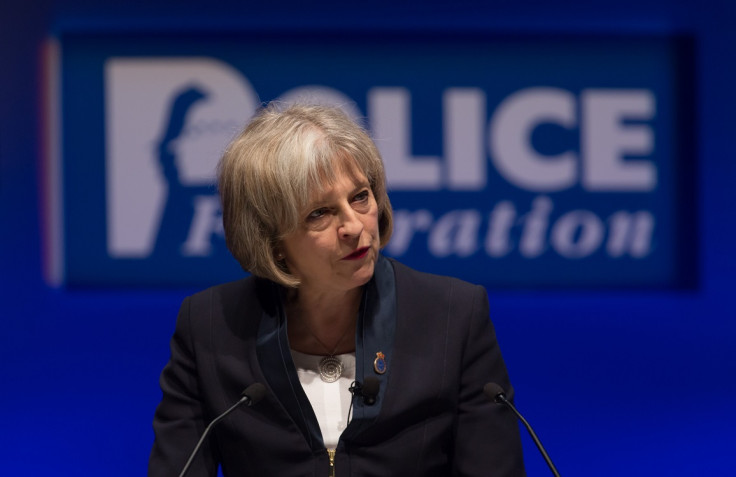The Prevent terrorism strategy is dangerously counterproductive for British Muslims

Last weekend I spoke at the HowTheLightGetsIn cultural fiesta in Hay-on-Wye. The skilfully curated programme includes philosophical and political debates, talks by big names, music, performances and themed parties. You get high on ideas and intellectual energy.
During my sessions the issue of freedom of expression came up. People felt it was a fundamental European principle and many avowed they would die to protect the right. Afterwards, in the outdoor cafe, I met a Muslim medical student, handsome and intense. He looked me in the eye and spoke: "They say all the time they believe in free speech but do nothing when the government takes away that freedom from Muslims. I argued with my professor about Western governments and how they fund dictators and terrorists. They do − Cameron sold Saudi Arabia more arms this month and our taxes are used to make havoc in Muslim countries. He warned me he would report me to the police because I have extremist views. How is that extremist? Where is my freedom?"
Talk to Muslims, even those who feel most integrated and Westernised, and you get the same bitter questions. Disillusionment and fear is spreading. Three families from my Shia Muslim community are moving to Canada. Why now? Because of the government's Prevent agenda and policies.
The counter-terrorism bill promised in the Queen's Speech is likely to be dangerously counterproductive. The strategies already in place have not been properly evaluated or deliberated.
When passing new laws, most ministers, male and female, reach out for macho posturing and speedy responses. Unintended consequences are quick to follow. Our leaders are behaving like those three monkey statuettes people used to have on mantelpieces −they will not see, hear or talk about the alienation resulting from Prevent policies.
Some truths are undeniable: radicalised Muslims are a real threat to democracy and nations, and Isis has effectively indoctrinated thousands of British Muslims. It is the most enticing cult of the modern age. I also fear that too many Muslim parents are becoming anti-Western and adopting practices that are an affront to good, universal, human values.
Yet I am also deeply concerned about our elected legislators and how little most of them know about diverse British Muslims, their passions and place in this country. Policy makers and professionals share these anxieties. Teachers, lecturers, social and health service workers are expected to report anyone suspected of harbouring radical views − to become state spooks. Educators feel they are being compelled to watch and report young children and campuses are ill at ease.
Radicalised Muslims are a real threat to democracy and nations, and Isis has effectively indoctrinated thousands of British Muslims. It is the most enticing cult of the modern age
David Anderson QC, the independent scrutiniser of anti-terrorist legislation, has warned that the policies are undemocratic and may be leading to more Muslim disaffection. Student bodies have accused Cameron and his cabinet of racism. Muslim organisations that support Prevent − and there are a few − are seen as collaborators with the forces of authoritarianism. It is all getting frightfully contentious.
At a symposium this month, these divisive and difficult emerging issues were discussed. Middlesex University (where I am a part-time professor), The University of East London and British Muslims For Secular Democracy were the joint sponsors. The 35 delegates included academics, activists, police reps, NUT and NUS reps, journalists, individuals from faith and secular groups and most importantly, a Home Office civil servant who promotes the controversial policies.
He explained that misconceptions and perceptions were muddying the waters, that the aim was to stop the bad guys − not punish all Muslims or intimidate blameless citizens and residents. He was a good communicator and credible, but could not shift the doubters and objectors. They remained unconvinced, but said it was good to hear the inside view.
Discussions were respectful and candid; people who don't usually gather in the same room had the chance to talk as equals. This doesn't happen often and all the delegates said they valued the depth and honesty of the conversations.
Effective governance depends on a degree of solidarity between different citizens and distinct groups too. We, in the UK, have managed to retain that cohesion through the hardest of times. The IRA blow ups in previous decades, the London bombings in July 2005, the Iraq and Libya wars did not split us.
Today, however, social distrust is spreading. The young medic said some of his fellow students now shun him. These laws could wreck the fragile bonds between Britons and lead to more chaos and violence. This was the main message to come out of the symposium. Mr Home Office will have passed it on to his boss, Theresa May. Let's hope this lady is for turning, and fast.
© Copyright IBTimes 2025. All rights reserved.






















